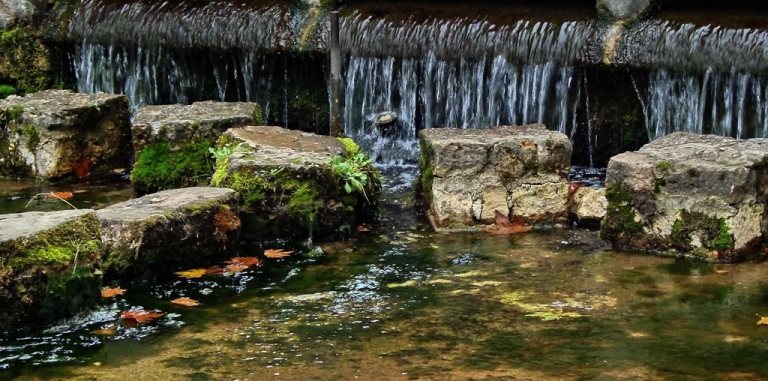Корисни линкови:
prirachnik-za-ekosan-toaleti kompost-flaer urina_flaer szo_nasoki
Новинари за човекови права во партнерство со WECF, Еко-Форум од Зеница, Жени во Разврој од Скадар- Албанија, и УНЕП, го започна проектот „Намалување на хемикалиите и загадување на изворите на вода за пиење во руралните заедници“. Целта на проектот е преку изградба на Eкосан тоалети, поставување на филтри за отпадна и компост, да се помогне во намалување на употребата на хемиски ѓубрива и заштита на изворите на вода во руралните области на Југоисточна Европа
Проектот конкретно се однесува на намалување на проблемот на загадување на водата за пиење, предизвикани од широко користени полски тоалети во руралните средини, како и лошото управување со водните ресурси со интензивна употреба на хемиски ѓубрива и небезбедно депонирање на отпадот.
За таа цел, НВО Новинари за човекови права, со нејзините партнери ќе направи демонстрација на еко тоалет (Urine Divert Dry Toilet), поставување на сив филтер за вода, како и демонстрација на градина и компост. Целта е граѓаните да ги видат придобивките од поставување и користење на еден таков тоалет, пред се во насока на правилно управување со отпадните води.
Од досегашните активности на терен дојдовме до сознанија кои одат во насока дека селата кај нас страдаат од лош хигиенски систем и голема употреба на хемиски ѓубрива и високо ниво на нитрати. Нашиот проект ќе се фокусира токму на спречување на загадувањето на животната средина со користење на не-хемиски алтернативи и имплементација на еколошки прифатлива санитација. Проектот е насочен на потребите на населението во руралните области за подобрување на нивната животна средина и животните услови преку прифатливи и одржливи технологии. Тој има за цел да ја намали контаминација на почвата и водните ресурси; рециклирање на органски материи, безбедна употреба во земјоделството и намалување на синтетички ѓубрива.
Ќе се демонстрираат следните технологии: пренасочување на урината преку суви тоалети (UDDT или Екосан), производство на органски ѓубрива, компостирање и третман на отпадна вода.
Новинари за човекови права таргетираше три можни места на кои ќе се постави Екосан тоалет, и тоа:
· Село Стење
· Село Јаболце
· Рекреативен центар Треска.
По консултации со партнерите, одлучивме демонстрацијата на Екосан тоалетот да биде во село Јаболце, општина Сопиште.
За потребите на проектот направена е работна група и поставени се активностите на кои ќе работиме во наредниот период. Истовремено мапирани се руралните предели во Македонија кои имаат потреба од Екосан тоалети, со што во овие села ќе се направи презентација на проектот и ќе им се понуди помош во нивно поставување.
Корисниците на Екосан тоалетите ќе имаат корист од проектот со тоа што ќе добијат:
· Долгорочно и одржливо санитарно решение, и знаење, за да изградат повеќе Екосан тоалети
· Ќе се стекнат со знаење и средства како да се користат органски ѓубрива, наместо хемиски
· Пристап до почиста вода за пиење, а со тоа и помалку болести предизвикани од небезбедна вода, особено за децата
· Намалена еутрофикација на загадени реки и езера што се наоѓаат во нивна близина
Проектот е финансиран од страна на стратешки пристап кон меѓународно управување со хемикалиите (SAICM), Фонд за брз старт програм
Студиска посета на Молдавија
Во рамките на проектот, практичната примена на Екосан тоалетот и негово функционирање беше демонстрирано во Молдавија. Од 28 септември до 1 октомври 2015 во Кишињев, во Дорчија и во Болдурешти посетивме повеќе села и јавни институции (општина и училишта), приватни корисници на Екосан тоалетите. Во Молдавија има преку 200 Екосан тоалети кои ги користат повеќе од 8 години. Приватните корисници главно се во селски домаќинства. Некои од тоалетите се во куќите некои се надвор од куќите. Прв впечаток е дека очекуваната миризба од полско веце во овој случај нема. Миризба нема и во јавните односно тоалетите кои ги користат во училиштата или во општините. Со правилна употреба Екосан тоалетите може да функционираат неограничено време. Чистењето е едноставно, а користењето е веројатно навика. Во овие тоалети уринирањето е одвоено од правењето на измет. Откако ќе се заврши, изметот се посипува со струготини од дрво или со пепел, а точно направените цевки за одвод овозможуваат вентилација и отстранување на миризбата. Изметот се собира во одвоен контејнер (сад, кутија) од урината (туба, буре…). Знаејќи дека просечно годишно човек исфрла 30-50 кг. фецес и окулу 500 литри урина, лесно може да се пресмета големината на резервоарите. Со посебен третман изметот и урината се користат (се враќаат) во природата и не предизвикуваат загадување на околината. Напротив претставуваат извор на вештачко ѓубре.

